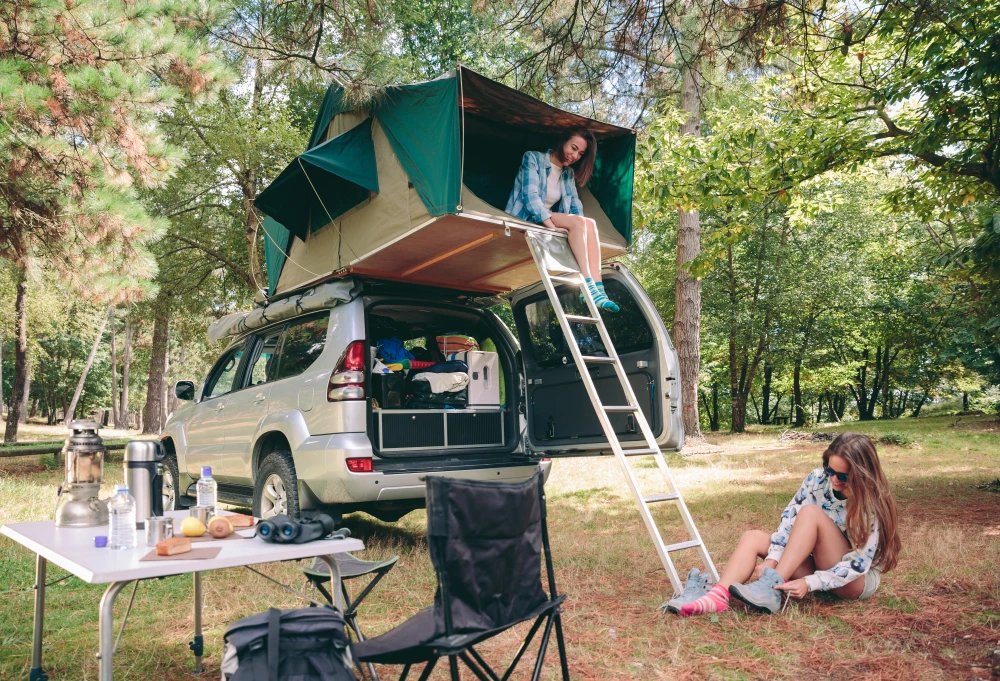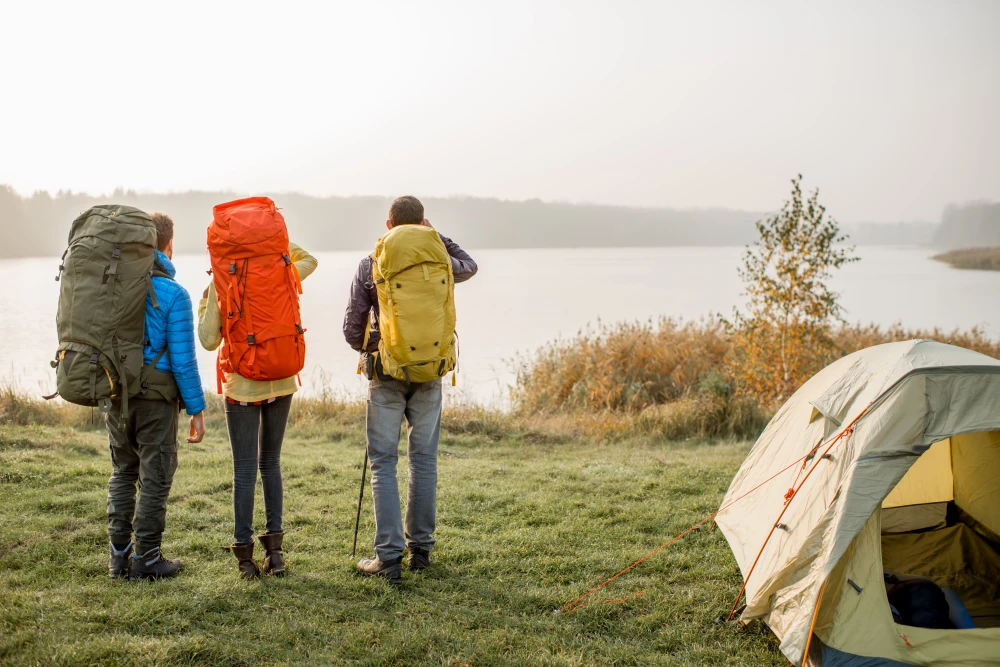There isn’t just one way to enjoy camping. Some people love driving to a campsite, setting up their tent right next to their car, and enjoying the comfort of having plenty of gear nearby. Others prefer loading everything into a backpack and hiking deep into the wilderness, feeling closer to nature and further away from the city.
Both styles have their unique advantages and disadvantages. So, which one is right for you? Let’s compare car camping and backpacking step by step.
1. What Is Car Camping?
Car camping means driving your vehicle to a campsite and setting up your tent nearby. Some campers even skip the tent and sleep directly inside their car.
Pros of Car Camping:
- You can bring more gear — no need to worry about weight.
- Comfort: inflatable mattresses, folding chairs, and coolers are easy to pack, giving you “home-like” convenience.
- Beginner-friendly: a safe choice for families and first-time campers.
Cons of Car Camping:
- Campsites can be crowded and noisy — not ideal for those seeking solitude.
- Limited to areas accessible by car. Without a proper vehicle, you may not reach certain spots.
2. What Is Backpacking?
Backpacking means carrying all your gear on your back and hiking to a more remote location to camp.
Pros of Backpacking:
- Offers solitude and a more peaceful connection with nature.
- Freedom to reach areas where vehicles cannot go. Plus, hiking itself is healthy.
- Minimalist lifestyle: carrying only essentials teaches you to live simply.
Cons of Backpacking:
- Requires physical fitness and careful preparation.
- Limited space and weight capacity restricts what you can bring.
- More self-reliance is needed. Emergencies can be harder to manage.
3. Gear Differences
The items you need to take with you vary depending on the type of camping.
Car Camping Gear:
- Larger, heavier tents
- Air mattress or camping cot
- Cooler with fresh food
- Full-size camping stove and cookware
- Folding table and chairs
Backpacking Gear:
The weight and volume of each item you will be carrying is very important. For this reason;
- Lightweight and compact tent
- Sleeping bag + compact pad
- Dehydrated or freeze-dried meals
- Ultralight backpacking stove
- Headlamp and minimal lighting gear
would be appropriate to keep.
4. Cost & Accessibility
- Car Camping: Can be more affordable since you don’t need specialized ultralight gear. However, campground fees may apply depending on location.
- Backpacking: Ultralight gear tends to be more expensive, but wild camping is often free, giving you access to endless wilderness spots.
5. Which One Should You Choose?
Ask yourself these questions before deciding:
- Do you value comfort or solitude more?
- Are you camping with kids or friends who are new to camping?
- Do you want to experience a minimalist lifestyle outdoors?
- Are you physically prepared to hike with a heavy backpack in tough conditions?
If you prioritize comfort and convenience → Car Camping is for you.
If you want freedom, solitude, and adventure → Backpacking is your match.
6. A Hybrid Approach
You don’t always have to pick just one. Many campers start with car camping to gain confidence and later transition into backpacking. Some even mix the two: drive to a trailhead, hike a short distance with your pack, and camp in a quieter, more private spot.
Conclusion
Both car camping and backpacking have their unique rewards. Car camping offers ease and comfort, while backpacking provides freedom and a deeper bond with nature.
The right choice depends on your personal preferences. What matters most is enjoying the outdoors and creating unforgettable memories no matter which style you choose.


